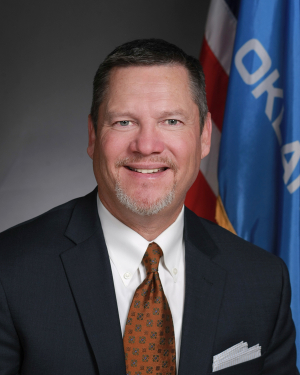I have long said that the most important job of the state Legislature is to write and approve a balanced budget. As vice chair of the Senate Appropriations Committee, it’s a task I am focused on year-round. Almost as soon as one legislative session ends, I am working with our chair, Senator Roger Thompson, of Okemah, on preparing for the next fiscal year’s budget.
The State Board of Equalization (BOE) is the body that determines how much revenue will be available to appropriate in the next fiscal year. This board was created in 1907 in Oklahoma’s Constitution and includes a slate of six statewide elected officials. The members are the governor, lieutenant governor, attorney general, treasurer, superintendent of instruction, state auditor and the president of the board of agriculture. They analyze all the state’s revenue sources and other data to project the amount of collections and determine how much will be available to appropriate in the next budget year.
The BOE made it’s initial certification in December, determining the Legislature would have $10.3 billion available to appropriate for FY ’23, but we know projected revenue collections can change, so a second certification takes place two months later in February.
This past Tuesday, the BOE certified that the Legislature would have nearly $10.5 billion available to appropriate in the next budget year. When you look at the final numbers a year ago of over $9 billion, that’s an increase of 15.74 percent. While the fact that our economy and revenues are growing is undeniably good news, I want to tell everyone that it is still vitally important for us to take a thoughtful, cautious and conservative approach to spending. Our economy and revenues have been bolstered by high energy prices and federal dollars related to pandemic economic recovery. Energy prices, as we have seen over and over in Oklahoma, will not remain high indefinitely, and the flow of federal pandemic dollars will come to an end.
It is also important to remember that nearly $1.3 billion of the amount certified includes one-time carryover funds and special cash from previous sessions. That means we cannot use those dollars for recurring expenses. Think of it this way—if you received a one-time bonus from your employer, the smartest thing you could do would be to set it aside for a special home repair or maintenance project or put it aside for emergency savings, or a combination of those strategies. You wouldn’t build it into your monthly household budget because it wouldn’t be there in future months. That’s how we have to treat that $1.3 billion.
The state constitution does give us a slight buffer, in that we are only authorized to appropriate 95 percent of available revenues—that remaining five percent gives us a small cushion in case the revenue projections are a little bit off, or in case the economy shifts. But if there’s a larger decline, having sufficient emergency savings can help us shield our core services from major cuts.
Before the session even began, our appropriations subcommittees were holding hearings with state agencies about their budgets and their requests for the next fiscal year. With this February certification in hand, we can now start putting together all the pieces that will make up the FY ’23 budget. Senator Thompson and I continue holding meetings with our subcommittee chairs, with our caucus, and are available to all members to provide information throughout the budgeting process. I’ll keep you updated as we proceed.
In closing this week, many of you have heard that Oklahoma U.S. Senator Jim Inhofe planned to resign from his post. He was first elected as a member of the U.S. House of Representatives in 1986 and was elected to the U.S. Senate in 1994. He has served our state and nation with dedication, courage, and integrity and I am profoundly grateful for his service.
Please feel free to contact my Capitol office with any questions or concerns you may have about legislation or other issues impacting our state at 405-521-5628 or at Chuck.Hall@oksenate.gov.





Be the first to comment on "Sen. Hall: “That’s how we have to treat that $1.3 billion”"